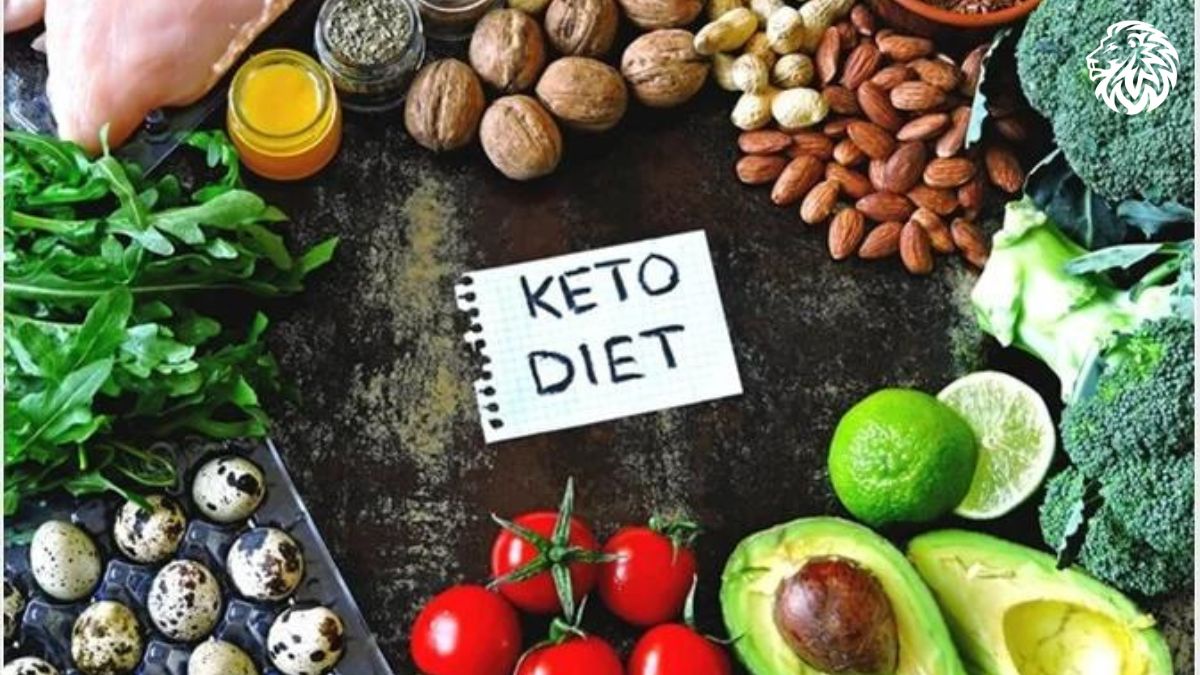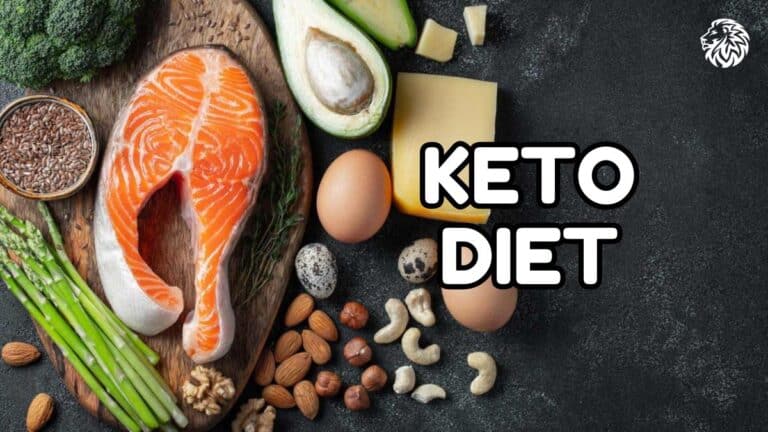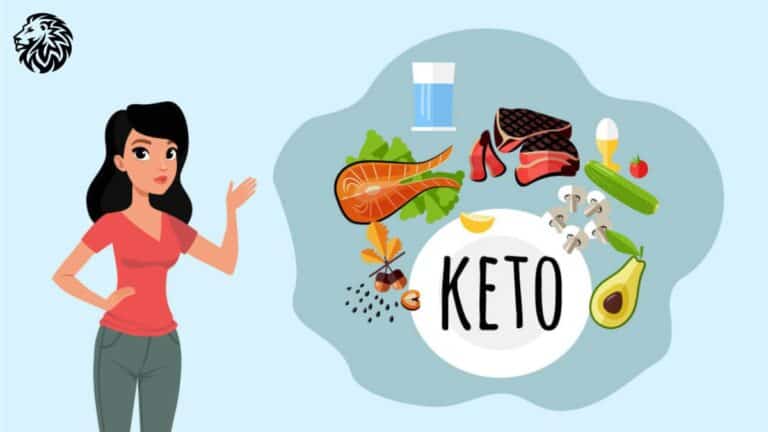Potential Risks of Keto Diet
Impact on Heart Health
Going keto means loading up on fats—yeah, even the not-so-great saturated ones—which might mess with your ticker. Loading your plate with things like red meat, processed goodies, and other fatty guys while side-eyeing carbs found in fruits, veggies, and grains isn’t the best combo for your heart. Yep, it might even beckon issues like heart woes and colon troubles (Forks Over Knives). Up goes the cholesterol, followed by the risk of heart disease joining the party.
Skipping out on carbs could leave your nutrient intake lopsided, maybe setting you up for shortages in essential stuff. These shortages could raise the stakes for heart-related issues too. Keeping tabs on your heart’s status while dabbling in keto is smart, and hitting up a healthcare pro—especially if you’ve had heart hiccups—is a good call. For tips to help, peek at our bit on keto diet supplements.
| Health Jitters | Possible Fallout |
|---|---|
| Heart Woes | Skyrocketing cholesterol, clogging arteries |
| Colon Issues | Low fiber upping the cancer ante |
| Brain Drain | Slim pickings on nutrients affecting brain power |
Kidney Function Concerns
Piling on protein and fats with your keto jaunt can take a toll on your kidneys, particularly if they’re already giving you grief. Folks with chronic kidney issues should steer clear of this diet since it might stoke acid levels in the blood that faltering kidneys can’t clear (Healthline). Digging into lots of meats and cheeses can send blood and urine acidity soaring, annoying your kidneys even more.
This protein-packed trip could also raise the odds of kidney stones crashing the scene. High acidity from all the animal fare can lay the groundwork for stone creation.
Stay hydrated like it’s your job, and maybe swap in some plant-based proteins to fend off these problem, stay aware of how your kidneys are doing with regular check-ups, especially if you’re sticking with keto for the long haul. For a glance at kidney-friendly keto picks, check our keto diet foods page.
| Kidney Woes | Possible Fallout |
|---|---|
| CKD Spiral | Acid piling on, kidney strain |
| Stone Snafus | Rising acid, stone makers |
Grasping these potential pitfalls can help you decide if keto’s your thing. Chatting with a healthcare provider ahead of major diet switch-ups is always wise, especially with any existing health stuff in the mix. Dive into our pieces on keto diet and diabetes and keto diet supplements for tips on riding out these risks.
Long-Term Health Effects
Hey there! Diving into the long-term effects of the keto diet is like opening a can of worms. You want to make sure this diet won’t rain on your parade down the line. Especially if there’s a bun in the oven, it’s important to know what’s cooking when you’re on keto.
Negative Health Outcomes
The keto diet—it’s a bit like that magic trick your uncle pulls every Thanksgiving. At first, it’s impressive, but there’s a catch. Studies are throwing shade, suggesting a potential storm of health issues (Forks Over Knives). Here’s the scoop on risks you could end up dealing with:
- Heart Disease: Chow down on all that bacon and buttery goodness, and you might just find your arteries doing the cha-cha. LDL (bad) cholesterol likes to crash the party, upping your heart disease risk.
- Kidney Damage: High protein levels in the diet can stress out your kidneys, which is kind of like asking them to run a marathon every day. Not fun, especially if they’re already waving the white flag (Forks Over Knives).
- Diabetes: While the diet is like a short-term magic act for blood sugar, the curtain might close with a higher diabetes risk if you eventually jump ship (Harvard Health Publishing).
- Cancer: By saying ‘no thanks’ to carb-rich munchies like fruits and veggies, you might accidentally be rolling out the red carpet for certain types of cancer (Forks Over Knives).
- Alzheimer’s Disease: Too much focus on fats and not enough real food variety might give Alzheimer’s a backdoor invite.
- Weight Gain: It’s the classic boomerang effect: lose yay, gain yikes! Once you drop keto, weight might just boomerang right back (Harvard Health Publishing).
| Oh No! What Could Happen | The Keto Connection |
|---|---|
| Heart Disease | Munchin’ on loads of saturated fats |
| Kidney Damage | Protein overload city |
| Diabetes | Post-diet sugar spikes |
| Cancer | Skipping the fruit & veggie aisle |
| Alzheimer’s Disease | Skimping on brainy foods |
| Weight Gain | Long-term gain after short-term loss magic |
Risks for Pregnant Individuals
Pregnancy’s like running a marathon while carrying a watermelon—nourishment is key! A keto diet plan might not be the best thing to plate up during this chapter of life.
- Nutritional Deficiencies: The nutritional buffet needed for your little one’s growth might be running low on variety if you’re sticking to keto.
- Impact on Fetal Development: Low levels of nutrients like folic acid (think leafy greens or legumes) could mess with your baby’s development.
- Potential for Increased Fatigue: The “keto flu” could hit harder than a freight train, adding extra exhaustion to your already energy-draining pregnancy.
Looking for a better path? Check resources on keto diet foods and keto diet for beginners for something that won’t take as much toll.
Balancing these health bumps and knowing what’s at stake can help decide if keto jives with your health tune.
For more juicy insights on keto’s bombs and blunders, check out the low-down on adjusting to ketosis and nutritional considerations.
Side Effects of Keto Diet
Common Symptoms
Jumping into the keto trend? You might experience what folks call the “keto flu.” This collection of not-so-pleasant feelings often happens as your body gets used to running on low carbs and switches into fat-burning mode. According to some smart folks over at NCBI, short-term symptoms like tiredness, headaches, and even nausea can crop up.
- Tiredness
- Head pain
- Feeling light-headed
- Upset stomach
- Throwing up
- Not-so-regular bathroom visits
- Running outta gas during workouts
The intensity can vary:
| Symptom | Mild (%) | Moderate (%) | Severe (%) |
|---|---|---|---|
| Nausea | 29.2 | 16.4 | 5.8 |
| Dizziness | 39.8 | 27.4 | 11.5 |
| Polyuria | 72.1 | – | – |
| Lethargy | 69.7 | – | – |
Typically, these woes fade after a few days or weeks as your body gets the hang of its new fuel source. Need more tricks on handling this? Check out our advice on how to start keto diet.
Nutrient Deficiencies
On keto, it’s easy to miss out on some key vitamins and minerals because it’s pretty restrictive. According to Healthline, you might fall short on:
- Bone-friendly calcium
- Sunshine vitamin (D)
- Muscle-loving magnesium
- Essential phosphorus
Missing out on these can lead to serious long-term issues, like bone problems from low calcium and vitamin D, or vital function hitches from not enough magnesium and phosphorus. As per NCBI, here’s what you might face short-term and long-term:
| Side Effect | Short-term | Long-term |
|---|---|---|
| Dehydration | Yes | No |
| Low blood sugar | Yes | No |
| Sluggishness | Yes | No |
| Frog-breath | Yes | No |
| Seeing things funny | Yes | No |
| Tummy troubles | Yes | No |
| Low proteins | No | Yes |
| Weak bones | No | Yes |
| Higher bad cholesterol | No | Yes |
| Kidney stones | No | Yes |
| Gallstones | No | Yes |
| Thinning hair | No | Yes |
Supplements can be your new BFF. When diving into keto, consider boosting up with potassium, sodium, magnesium, calcium, omega-3s, psyllium fiber, and vitamins B, C, and E. Read more in our piece about keto diet supplements.
Get the right info and stay ready to manage these side effects like a pro. You’ll glide through the keto diet experience with confidence and aim for those long-term gains.
Impact on Specific Conditions
You probably hear a lot of buzz about how the keto diet changes the game with different health issues. So, let’s chew on how this low-carb, high-fat gig affects diabetes and those pesky chronic diseases.
Consideration for Diabetes
If you have diabetes, eating keto might feel like trying to balance on a seesaw. On one side, there’s some good news. A bunch of folks with type 2 diabetes tried a very low carb keto diet for about four months and saw their blood sugar numbers go from around 7.5% to about 6.3% (NCBI link). Some even said, “Bye, bye,” to some of their meds or insulin. Check out these stats:
| Measure | At Start | After 16 Weeks |
|---|---|---|
| HbA1c (%) | 7.5 ±1.4 | 6.3 ±1.0 |
| Diabetic Meds | Way Up | Cut Back |
But, on the other side, this diet isn’t a walk in the park. A peek into folks with type 1 diabetes doing the same diet showed that while they managed their blood sugar pretty well, they also played the risky game of low blood sugar episodes. This means they had to fiddle with their insulin doses carefully. Wanna know more? Check out our piece on keto diet and diabetes.
Effects on Chronic Diseases
Now, when we talk about chronic diseases, the keto story gets a bit mixed up. For those with kidney issues (CKD), gulping down too much protein can push the kidneys to the edge and spell trouble over time (Forks Over Knives link). So, if kidneys aren’t your strong suit, tread lightly and with a doctor’s nod.
But, it’s not all bad news bears. A controlled look at things found some folks on this keto bandwagon had their BMI, LDL-C (the not-so-good cholesterol), and other health markers doing the happy dance after just two months (NCBI link). Here’s how it panned out:
| Parameter | At Start | After 8 Weeks |
|---|---|---|
| BMI | High | Lower |
| LDL-C | High | Better |
| Triglycerides | High | Less |
| Inflammation | High | Calmed Down |
If you’re dealing with a chronic condition and considering keto, weighing the good with the bad is key, and chatting with a doc is the smartest move. Get the lowdown on keto diet and chronic diseases in our section ready for you.
Understanding these swings and roundabouts helps you figure out if the ketogenic diet fits your health bill. Always put your safety first and have that important conversation with your healthcare pal before shaking up your diet.
Adjusting to Ketosis
Jumping into the keto diet isn’t always a smooth ride. Your body’s adjusting to fewer carbs and a whole new fuel source, which might throw you off a bit with what’s called the “keto flu.” Handling these hiccups and keeping tabs on your health is a biggie as you switch up your diet groove.
Skirting Around “Keto Flu”
“Keto flu” can hit you like a bad Monday morning. We’re talking headaches, dizziness, feeling like a rundown battery, nausea, and the joy of constipation. It mostly happens because your tummy isn’t getting its regular carb fix, down to just about 50 grams a day.
| Symptom | What’s Going On? |
|---|---|
| Headaches | Often popped up because you’re not drinking enough or missing electrolytes |
| Dizziness | Thanks to low blood sugar and your body’s fluid balance doing the limbo |
| Fatigue | Your body’s tired and figuring out this whole fat-as-fuel thing |
| Nausea | Your digestion might throw a tantrum over the new order of things |
| Constipation | Usually from less fiber and the whole dehydration situation |
To keep these symptoms from crashing your keto party, you can:
- Chug That Water: Stay hydrated. Water’s your new BFF for flushing out ketones and keeping things running.
- Electrolyte Boost: Get some sodium, potassium, and magnesium in your system. Supplements or food can do the trick.
- Eat the Good Stuff: Go for foods that are packed with nutrients and love.
- Easy on the Carbs: Don’t pull the rug too fast; slow and steady wins this race when cutting down on carbs.
Keeping an Eye on Things
As you buddy up with keto, listen to your body. Jot down what’s bothering you and make sure things settle within a few days or a couple of weeks, tops.
| What to Watch | What You Should Do |
|---|---|
| Water Levels | Keep sipping and watch for any desert-level thirst or signs of drying out |
| Electrolytes | Mix in some pill or food helpers for sodium, potassium, and magnesium jolts |
| Energy | Notice if you’re dragging and tweak your munchies to bring the pep back |
| Digestion | More fiber, less plumbing drama for your gut |
And here’s a little pro tip: if you’re still feeling off after a few weeks or things get intense, it’s probably time to holler at a doc who knows their stuff in this area.
For more goodies on riding the keto wave, check out our other reads about keto diet perks and nailing those keto macros.
By keeping it real with your symptoms and tuning your game plan, you’ll start feeling the love in your keto journey and keep your body happy and humming.
Nutritional Considerations
Macronutrient Ratios
Jumping into a keto routine? You’ve gotta get those macronutrient ratios right. Here’s the lowdown for the classic ketogenic munchin’: 70% to 80% of your food is fats, 10% to 20% is proteins, and a humble 5% to 10% are carbs (Cleveland Clinic).
| Macronutrient | Percentage of Daily Intake |
|---|---|
| Fats | 70% – 80% |
| Proteins | 10% – 20% |
| Carbohydrates | 5% – 10% |
To hit these numbers, go for fat-rich eats. Think: fish swimming in fat, eggs, creamy dairy, meats, buttery magic, oils, nuts, seeds, and veggies that give carbs the cold shoulder. Even “fat bombs” like unsweetened chocolate or coconut oil can help you reach your daily fat goal (UChicago Medicine).
New to this keto game? Planning out a keto diet meal plan can be your best friend. It keeps you on track and makes sure you don’t unintentionally step off the ketosis train.
Role of Supplements
Even with a spot-on keto diet, there might be some nutritional holes. Here’s where backups save the day. These extras fill in the gaps, making sure your health doesn’t take a backseat while you’re shedding those pounds on your keto diet weight loss ride.
Supplements worth considering:
- Electrolytes: As your body dumps water during early keto, it drags sodium, potassium, and magnesium along for the ride. Keto-friendly electrolytes, like a sprinkle of keto electrolyte powders, can help (Healthline).
- MCT Oil: These Medium-chain triglycerides pack a quick energy punch and may boost ketone outputs.
- Omega-3 Fatty Acids: Found in trusty fish oil, these help keep your heart scoring goals by balancing your omega ratios.
- Vitamin D: Great for those bones and immune systems, especially if sunshine isn’t part of your routine.
- Fiber Supplements: With keto’s low-carb ways, fiber can lag behind. Fiber buddies can help keep your digestion happy.
| Supplement | Benefit |
|---|---|
| Electrolytes | Replenish sodium, potassium, magnesium |
| MCT Oil | Increases ketone levels |
| Omega-3 Fatty Acids | Supports heart health |
| Vitamin D | Promotes bone health |
| Fiber Supplements | Aids digestion |
For more on supplements that fit the keto lifestyle like a glove, swing by our keto diet supplements guide. Pair the right macros with the right supplements to dodge [keto diet side effects] and stay on point with those health goals of yours.







